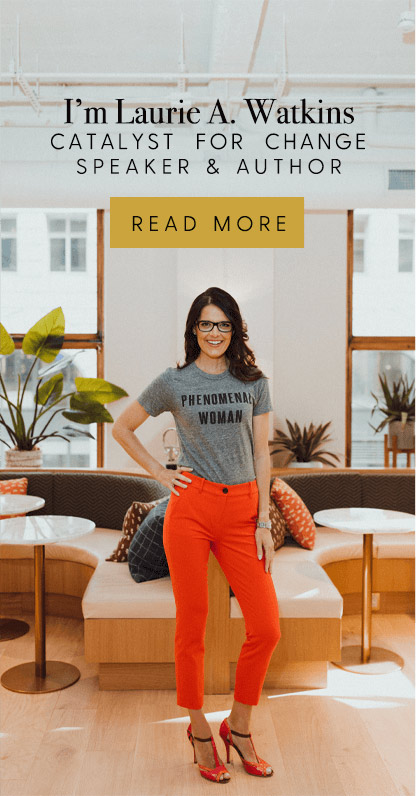As your vaccinated friends start to reach out with well-meaning messages like, “I can’t wait to hang out” or, “Let’s get together soon,” it is OK if you just aren’t quite ready for that yet.
Post-pandemic reopening anxiety is real. As more and more towns, counties, and even entire states begin reopening or are announcing their reopening plans, it is completely normal, and acceptable, to respond to that with a certain level of uncertainty and fear.
As we go to resume dining at restaurants, in-person workouts, commuting to the office, shopping, and other group activities, we face a new reality about our health, well-being, and financial status, which may be different than before quarantine.
A study out of China published in April found that 10.8% of people met the diagnostic criteria for post-traumatic stress disorder (PTSD) after returning to work. Following procedures like wearing face masks reduced psychiatric symptoms and made people feel more confident. It also helped when employers listened to the concerns of employees and made adjustments accordingly.
Balancing the need for normalcy while also recognizing and respecting our feelings of safety is a tricky balancing act. It is OK to focus on what is essential or important to you. Reopening will cause us all to evaluate our behaviors in a risk-reward model.
Grocery shopping, for example, is worth the risk to many people. Some people feel comfortable getting their haircut in a distanced, masked space and that makes them feel good about themselves. Others may prioritize going to the gym. Getting back out there can be scary, and everyone will feel differently. All we can control is ourselves. If we stay vigilant and wear our masks, we can operate at a certain level of safety and comfort.
A recent survey from the American Psychological Association found that 49% of adults reported feeling uncomfortable about returning to in-person interactions when the pandemic ends. Even 48% of people who have received the COVID vaccine report feeling the same way.
The COVID-19 pandemic has taken so much from everyone. Plenty of people lost their jobs and businesses, lost loved ones, lost the ability to socialize with other people, lost out on major milestones, and plenty more.
One thing that many people have gained through lockdown is a sense of social anxiety. While not everyone will be diagnosed with this condition, we’ve all been acting in a similar fashion. Avoiding people and interactions. It is natural that there would be some fear about going back to our previous level of interactions with others.
Here are some tips on navigating getting back to seeing friends, family, and back into the office:
Acknowledge your feelings as valid.
After spending a whole year (or longer), having to learn that everyone is a possible contaminate, it makes perfect sense that you may be wary of others. Be kind to yourself and understand that your feelings are rational.
Take things slow.
Don’t let FOMO (fear of missing out) make you jump into things sooner than you are ready. Think of going out as exposure therapy. Start small and work your way up at your own pace and comfort level. Assess your feelings after each activity. The last year has changed all of us. Things we used to find joy or comfort in may not make us feel that way anymore.
Listen to your body while taking things slow.
Pay attention to what is physically happening within your body while doing certain activities. Is your heart racing? Do you have shortness of breath? Are your hands shaking? Sometimes we realize we are experiencing anxiety about an activity physically before our brains can really register what is happening. Practicing mindfulness is helpful to discover what your body is telling you.
Focus on what we do know.
For example, the CDC recently updated its guidelines for people who have been fully vaccinated, saying that they can visit with other people who are also fully vaccinated but in small groups. Scientists will continue to learn more about this virus for years to come. Focusing and worrying on that may not be the most helpful to get you back to seeing friends, family, or back in the office. Focus on the ways we know how to protect ourselves. Focus on knowing the COVID-19 prevention protocols of where you are going. Also, take it slow. Maybe start by sitting outside a quiet coffee shop, then work your way up to eating inside a restaurant, and then perhaps an event, still wearing a mask.
Listen to your gut.
Just because an expert or a friend or your mom or your boss tells you that a situation is low risk, does not mean you have to instantly jump in to say yes. Give yourself the grace to establish and hold up boundaries. Everyone is entitled to get back to their version of normal at their own pace.
Find your anxiety allies.
Find the people who support you and understand your fears. Better yet, find someone who feels the same way you do. If you can’t, there are resources available through online groups or even therapy to help us navigate adjusting to the reopening.
Go easy on yourself.
After a year or more of looking over your shoulder and questioning so much, just acknowledging your anxiety and fear without judging yourself is important. Do not beat yourself up if you just can’t do everything right away. This is not the time to compare yourself to others. There is nothing wrong with adjusting to the world around you reopening at your own pace.
Be mindful of your grief.
Many people are grieving someone who passed away from COVID-19. Others are grieving the missed experiences or loss of a job or something else entirely. Oftentimes, going out and being around tons of people or having a whole new experience may not be in your best interest while grieving.
Don’t let anger get the best of you.
We all know those people. The ones who travel unnecessarily. Those who refuse to wear masks. The ones that still think COVID-19 is a hoax. Those who feel the vaccine is unsafe. And those that seem to live for being confrontational with others. People will always be doing things that we don’t necessarily agree with. Being sure to have your anger under control on these topics may help you ease into the reopening efforts with less anxiety. Again, all we can control is ourselves.
Find greater meaning.
Try coming up with some things that you learned during this time, either about yourself or others close to you. Try to think about a way to volunteer or give back to your community when you are comfortable.
How are you feeling as the country begins to reopen? Are you planning to getting back out there or not? I’d love to hear from you so please drop a line in the comments section of the blog.






